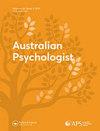行为自动性和意向对过去到未来参加训练营的中介作用
IF 2
4区 心理学
Q2 PSYCHOLOGY, MULTIDISCIPLINARY
引用次数: 1
摘要
摘要目的本研究的目的是测试行为的自动性和意图是否介导了过去行为对一种特殊类型的剧烈体育锻炼的影响:参加训练营。方法社区样本(N = 69)之前参加过训练营课程,是从澳大利亚昆士兰招募来的。参与者被要求完成他们以前参加训练营、行为自动性和参加训练营意愿的测量(时间1)。一个月后(时间2),参与者被要求报告他们上个月的训练营出勤率和行为自律性。将数据拟合到偏最小二乘SEM模型中。结果过去的行为可以预测意向和行为的自动性。然而,尽管行为自动性显著预测了前瞻性测量的行为,并介导了过去和未来的行为关系,但意图和参加训练营之间没有显著关系。过去的行为仍然可以预测未来的行为,超越行为的自动性和意图。结论目前的研究结果支持双重过程和习惯理论,即行为自动性在过去行为对未来行为的剩余影响中占了一部分,而故意过程没有考虑到这一部分。意图缺乏显著影响也可能支持这些理论,因为训练营课程可能发生在稳定的环境中(例如,在规定的时间和固定的地点),鼓励习惯性反应而非深思熟虑的决策。要点关于这个话题已经知道的内容:(1)进行有规律的体育活动,特别是高强度的运动,有利于健康和幸福。(2) 双过程模型扩展了社会认知理论,认为行为主要是通过深思熟虑或自动途径产生的,这取决于上下文和情境因素。(3) 双重过程和习惯理论中的一个常见假设是,当行为发生在稳定的环境中时,自动性可能会表现出强烈的影响。该主题补充道:(1)这项研究测试了行为自动性和意图对体育活动的影响,这是一种很少检查但很常见的锻炼类型,即参加训练营。(2) 行为自动性介导了过去行为和未来参加训练营的人数之间的关系,但该意图并不能预测参加训练营人数。(3) 考虑到训练营课程的稳定背景(即在规定的时间和地点),目前的研究结果支持双重过程和习惯理论,即更有可能稳定的行为更有可能自动实施,而不是经过深思熟虑。本文章由计算机程序翻译,如有差异,请以英文原文为准。
The mediating role of behavioural automaticity and intention on past to future bootcamp attendance
ABSTRACT Objective The aim of the current study was to test whether behavioural automaticity and intention mediated the effects of past behaviour on a particular type of vigorous physical exercise: bootcamp attendance. Methods A community sample (N = 69) who had previously attended a bootcamp class was recruited from Queensland, Australia. Participants were asked to complete measures of their previous bootcamp attendance, behavioural automaticity, and intention to attend bootcamps (Time 1). One month later (Time 2), participants were asked to report their bootcamp attendance and behavioural automaticity in the previous month. Data were fitted to a Partial Least Squares-SEM model. Results Past behaviour predicted both intention and behavioural automaticity. However, while behavioural automaticity significantly predicted prospectively measured behaviour and mediated the past-future behaviour relationship, there was no significant relationship between intention and bootcamp attendance. Past behaviour still predicted future behaviour beyond both behavioural automaticity and intention. Conclusions Current results support dual process and habit theory in that behavioural automaticity accounts for a portion of the residual effect of past behaviour on future behaviour which is not accounted for by intentional processes. The lack of significant effect by intention may also support these theories, as bootcamp classes likely occur in a stable context (e.g., at a prescribed time and in a regular location), encouraging habitual responding over considered decision-making. Key points What is already known about this topic: (1) Engaging in regular physical activity, especially vigorous intensity exercise, provides benefits to health and wellbeing. (2) Extending social cognition theories, dual-process models posit that behaviour is enacted predominately through deliberative or automatic pathways, depending on contextual and situational factors. (3) A common hypothesis in dual process and habit theory is that automaticity is likely to exhibit strong effects when the behaviour occurs in stable contexts. What this topic adds: (1) This research tests the effects of behavioural automaticity and intention on physical activity in a seldom examined yet common type of exercise, bootcamp attendance. (2) Behavioural automaticity mediated the relationship between past behaviour and future bootcamp attendance, but the intention did not predict bootcamp attendance. (3) Given the stable context of bootcamp classes (i.e., at a prescribed time and place), current findings support dual process and habit theory that behaviours more likely to be stable are more likely to be enacted automatically rather than deliberatively.
求助全文
通过发布文献求助,成功后即可免费获取论文全文。
去求助
来源期刊

Australian Psychologist
PSYCHOLOGY, MULTIDISCIPLINARY-
CiteScore
3.70
自引率
5.30%
发文量
32
期刊介绍:
The Australian Psychologist is the official applied practice and public policy journal of the Australian Psychological Society. As such, the journal solicits articles covering current issues in psychology, the science and practice of psychology, and psychology"s contribution to public policy, with particular emphasis on the Australian context. Periodically, Australian Psychological Society documents, including but not limited to, position papers, reports of the Society, ethics information, surveys of the membership, announcements, and selected award addresses may appear in the journal.
 求助内容:
求助内容: 应助结果提醒方式:
应助结果提醒方式:


